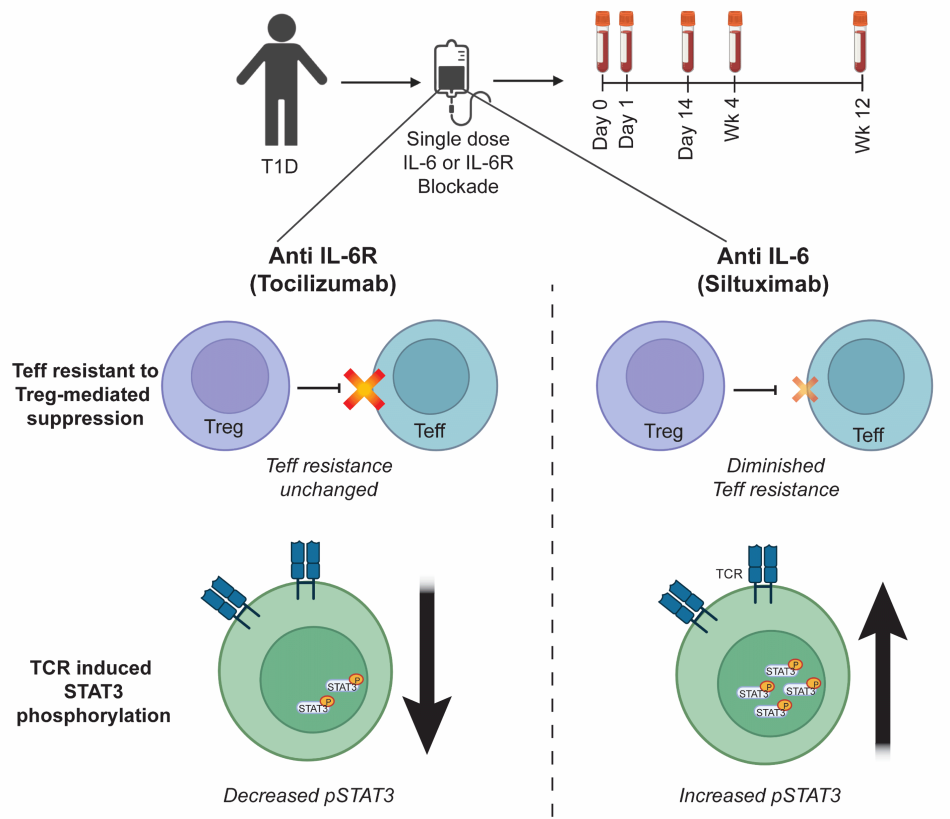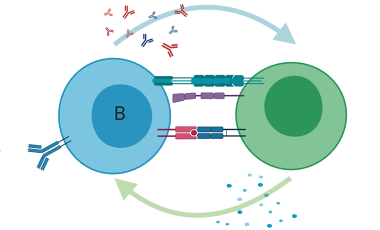The Buckner lab has a long-standing interest in understanding how T cell function is altered in human autoimmune disease.
This research has focused on:
-
Determining the functional impact of genetic variants associated with autoimmune disease including those in PTPN22, IFIH1 and TYK2 on T cell function; and
-
Investigating how alterations in response to cytokine signaling influence the expansion and persistence of pathogenic autoreactive effector T cells.

An ongoing project in the lab is focused on understanding the enhanced T cell response to IL-6 signaling in autoimmune diseases such as type 1 diabetes and multiple sclerosis. We recently demonstrated that there was heterogeneity in mbIL-6R and gp130 expression and IL-6-driven pSTAT1/3 responses across T cell subsets. Increased mbIL-6R expression correlated with enhanced signaling via pSTAT1, especially in naïve CD4 T cells. In a separate study, we showed that targeting the IL-6 receptor drives alterations in T cell function that are distinct from those observed when targeting IL-6. This study leveraged our Experimental Medicine Unit’s ability to perform short-term interventions to ask mechanistic questions.
Additional Research Projects

Antigen-specific T cells in autoimmunity
Antigen-specific T cells play a central role in the adaptive immune response, driving the cellular response to foreign antigens and maintaining immune tolerance to self-antigens as well as contributing to the formation of immunological memory.

Regulatory T cells in the context of autoimmune disease
Regulatory T cells (Tregs) defined by expression of CD4, CD25 and the transcription factor FOXP3 play an essential role in maintaining immune tolerance and preventing the development of autoimmunity by suppressing effector T cell (Teff) proliferation and cytokine production.


